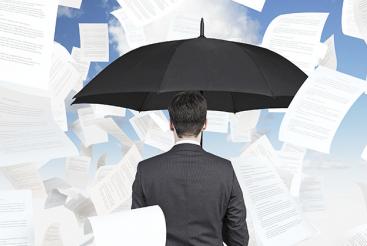Understanding your Equifax credit report

Understanding your Equifax credit report enables you to make more informed decisions regarding your finances.
Utilising the services of Equifax, Australia's number one consumer credit bureau, your Equifax credit report is also a tool credit providers may use to help them ascertain your financial reliability.
A credit report can contain the following information.
An Equifax credit report includes information about you such as:
- full name
- date of birth and driver's licence
- gender
- residential addresses and employer information.
Your credit report has distinct sections which includes:
Consumer credit information which may include:
- Credit applications made in the past five years relating to loans for household, personal or family purposes as well as loans to purchase, renovate or re-finance a residential investment property.
- Details of overdue consumer credit accounts
- Type of credit account such as a credit card or personal loan
- Account open date and close dates
- Credit limit. This is the maximum amount of credit available to you for an account. If you accept a credit limit increase the new credit limit could be included on your credit history.
- Monthly repayment history on credit accounts such as mortgages and credit cards. This will reflect whether you paid the minimum amount required on your financial commitments each month on time or not.
For the purposes of consumer credit reporting only, the following publicly available information is consumer credit information:
- court judgements and court writs
- directorship details
- proprietorship details
- bankruptcy, debt agreement and personal insolvency information.
Commercial credit information may include:
- credit enquiries pertaining to applications for credit for commercial purposes
- details of overdue commercial credit accounts
Public record information
When you get a copy of your Equifax credit report this information will form part of the consumer credit section of your report.
Here are the definitions of some key terms:
Overdue accounts
Overdue Accounts may be reported as a "payment default" or a "clearout".
Payment default
A consumer payment default is debt of $150 or more that is 60 days or more overdue. For example, if you have a telephone bill of over $150, and it was due more than 60 days ago, it could be listed on your credit file as a payment default. In the case of commercial credit the minimum default amount is $100.
Before listing a consumer default, the credit provider must sent a written notice requesting payment and sent another written notice advising you that the debt may be reported to a credit reporting body.
Potential credit providers may look unfavourably on applicants with a history of overdue accounts, so it's a good idea to avoid defaults getting onto your credit report. To do this, you need to ensure you pay your bills before they become overdue.
If an overdue account is listed on your credit report, the credit provider is required by law to update the listing, as soon as practical, once you've paid the overdue amount.
Generally speaking a payment default stays on your credit report for five years, even when you have paid the overdue amount. The fact that an account has become overdue and then been paid becomes part of your credit history.
Serious Credit Infringments and Clearouts
A serious credit infringement relates to circumstances where you owe a credit provider money but you have left or appear to have left your last known address without paying that debt and without providing the credit provider with your new address. .
It means that, at the time of listing the person who owes the money could not be located despite attempts to contact them.
Before a consumer serious credit infringement the credit provider must have first listed a default, must have made a number of attempts to contact you and not had no contact from your for 6 months.
In the case of commercial credit clearouts, If you can't be contacted, the credit provider can immediately list the debt on your file as overdue, even if it hasn't been overdue for 60 days or more. These will remain on your credit report for seven years regardless of whether they are paid or not.
Consumer serious credit infringements remain on a credit report for seven years from the date they're listed, however, if they have been paid they revert back to a default and will remain on the report for five years. The fact that an account has become overdue and then been paid becomes part of your credit history.
Payment Status - Current
If you have an overdue debt that you bring up to date, the credit provider must notify us that the debt is no longer overdue and can do this by updating the account's status as "current".
This means that, at the time your account was updated, your payments were up to date and the account was still open.
For example, you have a credit card account with $150 overdue, and an overall balance owing of $500. If you pay the $150, your file will show that account as "current", even though you still have credit card charges of $350.
Repayment History
If you pay your credit card or loan repayments more than 14 days past the due date this may be recorded on your credit report as part of your repayment history information as a late payment. This repayment history information is recorded on your credit report for a period of 2 years. While one late repayment, depending upon how late the payment is, is unlikely to significantly impact your credit worthiness, a number of late payments could be an indication you are in financial stress and may negatively impact your credit report.
Get your Equifax credit report for FREE today
Learn moreYou might also like

How your monthly repayments matter to your credit file
Monthly repayments on credit accounts like personal loans, mortgages and your credit card minimum balance can all be recorded on your credit file.

3 myths about your credit report
There are many mysteries surrounding what affects your credit score. Take a look at these three commonly believed myths that could catch you out.

How can I improve my credit record?
For anyone juggling payments and bills from various essential service providers, from electricity and phone connections to rent or a mortgage, getting on top of their credit score may feel like a looming goal. However, with a few changes, you can begin to repair an unfavourable credit report.
